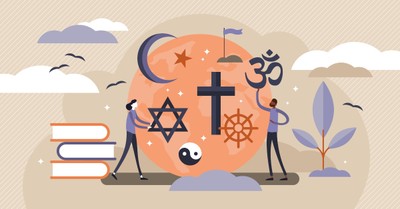The Good Shepherd, Fences, and Other Sheep
- 2012Apr 29
Here's this morning sermon from my friend Pastor Bob. Please forward to anyone you know who, for whatever reason, didn't make it into church this morning.

The Good Shepherd, Fences, and Other Sheep
A sermon by Pastor Bob
April 29, 2012
Text: John 10:11-18
John 10:11-18
“I am the good shepherd. The good shepherd lays down his life for the sheep. The hired hand is not the shepherd and does not own the sheep. So when he sees the wolf coming, he abandons the sheep and runs away. Then the wolf attacks the flock and scatters it. The man runs away because he is a hired hand and cares nothing for the sheep.
“I am the good shepherd; I know my sheep and my sheep know me— just as the Father knows me and I know the Father —and I lay down my life for the sheep. I have other sheep that are not of this sheep pen. I must bring them also. They too will listen to my voice, and there shall be one flock and one shepherd. The reason my Father loves me is that I lay down my life —only to take it up again. No one takes it from me, but I lay it down of my own accord. I have authority to lay it down and authority to take it up again. This command I received from my Father.”
–Sheep
–What is the first thing you think about when you think of sheep?
–Soft? Wooly?
–A cute little lamb?
–When I was living in Washington State, I used to pass a field with a flock of sheep.
–It was near the river, and the grass was tall everywhere else except inside the sheep pen, and on a little perimeter just outside of it.
–Like a neatly mowed lawn, the grass was clipped in the never-ending quest to munch.
–And it seemed to me that those sheep had the perfect life in that little pasture.
–It all seemed very perfect—except when it rained.
–And if you have visited northwest Washington, you know that is something that happens there a lot.
–It sort of drizzles for about six months, rains real raindrops for a few more, threatens to rain for about a month-and-a-half, and is absolutely gorgeous the rest of the time.
–There is a reason the grass and trees grow so quickly in northwest Washington.
–So you can imagine that these hardy sheep in a pasture in Washington would be used to the rain.
–But when I would drive by the pasture, those sopping wet sheep with their wool hanging down from their bellies did not seem too happy.
–It seemed to me that perhaps these sheep were definitely in need of a good shepherd.
–So I would watch them every day as I drove by going back and forth to church.
–They seemed to be always eating, and were often soggy.
–Well, as I say, the sheep lived in a pasture next to a river, and in December there was an event that happened in that area every year or two: the river would flood.
–Warm heavy rains would melt the snow that had accumulated in the Cascade Mountains, and the rivers would rise.
–At my church, people would call in and tell me that one or the other bridges was closed until there was only one bridge left getting out of town.
–One such time, as I packed up and as I made my way out of the flooding area, I couldn’t believe my eyes.
–There were several sheep from the flock that were stranded on a small hill, the highest point of the pasture.
–They were surrounded by water that was quickly rising.
–It was then I saw an even stranger sight.
–One of the members of my congregation, Jerry, one of my favorite bachelor farmers, was riding down Main Street.
–But what was unusual was that he was not driving his car or tractor, or even his usual bicycle; he was driving his boat.
–And inside the boat with him was a sopping wet sheep.
–Jerry was always up for anything, and so it should have been no surprise to me that he would go out in his little fishing boat picking up stranded animals.
–I watched with fascination as he picked up the stranded sheep a couple at a time and delivered them to the safety of a nearby pasture on high ground.
–As I made my way over to that pasture, I saw a scene that looked like it came out of Noah’s ark.
–Getting out of the car I was greeted by the vision of some cows that must have made there way up to the high ground, a couple goats, and now, with Jerry’s addition of a few more sheep—a flock of sheep.
–This newly formed flock appeared to be from several farms.
–Yet they huddled together as one.
–Keeping warm and supporting each other with noisy “baaaaaas.”
–And in the midst of them stood Jerry, beaming that huge smile of his.
–As I looked at him with his wide-brimmed cap, his bright orange poncho and waders, I realized that the person who stood before me was truly a good shepherd…
–One who cared enough to literally gather the lost lambs, but even more importantly, to gather them all into one flock.
–Our gospel reading this morning speaks of the Good Shepherd.
–And though we might not imagine the Good Shepherd of this gospel wearing an orange poncho and waders, we quickly realize that, like Jerry, our Lord Jesus goes after stranded sheep.
–Jesus says plainly to us, “I am the good shepherd.”
–And right off he explains that he is not like the hired hand that leaves his sheep to the wolves.
–Rather, he is the one who loves his sheep as his own children.
–Who cares for them, feeds them, and protects them.
–Who promises them he will not leave them alone.
–And most remarkably, will give his own life for them.
–Friends, you need to know this Good Shepherd.
–You need to know this morning that this good shepherd will not leave you.
–That even when you stray off
–even when you feel the rains of this life bogging you down
you will never be abandoned.
–For this shepherd has literally given his life for you and me on a cross just outside the city gates of Jerusalem.
–Do you know this Good Shepherd?
–Do you recognize his gentle voice calling you by name?
–It would be sufficient to stop here with our gospel text this morning.
–To know that you are in God’s care.
–But there is more to this Good Shepherd—this God Shepherd.
–For not only does God desire us in this sanctuary to know this Good Shepherd, but for everyone outside of these walls, outside of this pasture, to know him as well.
–In our gospel, Jesus is not just content to gather the sheep of his own flock, of the Jewish people–God’s chosen people.
–Jesus declares to his disciples and to us, that he has come for “other sheep,” other people.
–And that if you look closely at the gospel text, it is after he has gathered what he calls the “other sheep” that he then describes that he will die for them all.
–For truly in the care of the God Shepherd, we are one flock. One people of faith.
–For those of you who attended one of my adult Sunday School classes about the early Church, you might remember that the early Church struggled over this for many years.
–For after Jesus ascended to heaven and the Holy Spirit of Pentecost swept through those early disciples, they first understood themselves as Jews who recognized Jesus as their Messiah.
–The fulfillment of scripture.
–And they continued to faithfully worship as Jews attending the temple in Jerusalem and their local synagogues.
–Yet, this God Shepherd had indicated he laid down his own life, not just for the Jews, but for all the “other sheep.”
–And as God’s Holy Spirit worked through those early Christian-Jews, it became inevitable that non-Jews would be caught up in a faith that claimed them as well into this growing flock.
–Soon, this flock was struggling with who really belonged and who was outside the fence.
–Year after year, it became quickly apparent that fences meant nothing to this God Shepherd.
–And we here this morning are a product of that great and unbounded a love.
–Now, we probably don’t think of ourselves as “those other sheep,” but we are.
–And like every generation of “other sheep,” we soon forget the miraculous gift of being brought into God’s one flock.
–So here we are.
–We are in the middle of San Diego.
–And the question begs to be asked: What fences have we put up as a church?
–What fences have we put up without our realizing that it keeps others from entering this sanctuary?
–Will we invite them in?
–Or will we find ourselves huddled together on the top of a small hill with the floodwaters swirling all around around us?
–Friends, it is a joy to be with you as we explore these questions together in these coming months.
–As we look at the fences within and without this congregation.
–And as we gather around the word of our Good Shepherd each week.
–Our journey of faith together is truly a wondrous thing.
–And I guarantee you it will be filled with both sunny and rainy days.
–…Perhaps mostly sunny given that fact that we live in San Diego.
–But regardless, on this journey we are promised the company of the Good Shepherd, the shepherd who is our God.
–Who like Jerry in his orange poncho, beams at us with great affection and love.
–And calls us one flock.
***************************
Every Sunday morning you will find published here notes for the sermon my friend Pastor Bob will that morning be giving at the church he serves in San Diego.
Stars of the Old Testament
- 2012Apr 25
Here are some of the main stars, if you will, of the Old Testament, in order of their appearance in that awesome book.
God Created the universe. Quite famous. Is watching you right now. Back in the day, chose to reveal and very much involve himself in the life of the Israelites. Being people — which is to say, being extremely independent and stubborn — they tended to have real mixed feelings about that.
Adam Name is Hebrew word for “man.” It wasn’t Adam’s fault that he ate the famous, labor-inducing apple — Eve made him eat it. Famous quote: “The woman you put here with me—she gave me some fruit from the tree, and I ate it.” Apparently a tad weenyish.
Eve Name is Hebrew word meaning “life-giver.” It wasn’t her fault that she and Adam apple-gnoshed — Satan made her do it. Famous quote: “The serpent deceived me, and I ate.”
Satan Guilty! Forever! Needs to be executed, ASAP. The first of his two big appearances in the Old Testament is in the Garden of Eden. (Famous quote, from Genesis 3:4, where he’s explaining to Eve why it’s perfectly all right for her to eat the fruit God has forbidden her and Adam: “You surely will not die. For God knows that when you eat of it your eyes will be opened, and you will be like God, knowing good and evil.” What a slime bag.) His second big OT appearance happens in the book of Job, when Skankboy makes a bet with God that he can break Job. (His famous quote there is from Job 1:7, where he answers God’s question about from whence he’s come with, “From roaming through the earth, and going back and forth in it.” Back and forth in it. Like the snake he is! Can’t you just feel the ooze dripping of that silver-tongued cretin?)
Cain Adam and Eve’s first born son. Murdered his younger brother, Abel. Famous quote (from when, in Genesis 4:9, God asks him where Abel is): “Am I my brother’s keeper?”
Abel Seemed like a nice guy. Certainly deserved a better fate.
Noah Astounding capacity for following direct orders. While busily constructing his ark, was the subject of much derision and merriment. Soon enough became most popular boat captain ever. Famous, pretty-much-wraps-it-up quote from the Bible about him: “And Noah did all that the LORD commanded him.”
Abraham Descendant of Noah. Patriarch of the Hebrew race. God established his covenant (that is, made his sacred promise) with Israel by saying to Abraham (in Genesis 17:6-8), “I will make you very fruitful; I will make nations of you, and kings will come from you. I will establish my covenant as an everlasting covenant between me and you and your descendants after you for the generations to come, to be your God and the God of your descendants after you. The whole land of Canaan, where you are now an alien, I will give as an everlasting possession to you and your descendants after you; and I will be their God.” And that’s the beginning of the long process by which the man formerly known as Abram became “Father Abraham.” Famous (and heartbreaking) quote, said to his beloved son Isaac, whom, in obedience to God’s command, he was about to behead, and said in response to Isaac’s question to him about the whereabouts of the lamb that he thought he and his father had been preparing to sacrifice: “God himself will provide the lamb for the burnt offering, my son.”
Sarah Abraham’s wife. One exceptionally durable trooper. Famous quote (upon overhearing God say that she, an old woman, would become pregnant): “After I am worn out and my husband is old, will I now have this pleasure?” Awesome to think of how exactly she might have said the word “pleasure.”
Isaac Son who asked his dad, “So where’s that lamb we’re supposed to kill?” The only child of Abraham and Sarah; the second member (along with his father Abraham and son Jacob) in the triumvirate of Israel’s patriarchs. His descendants became the Jews. Famous quote about him, said by God to his father Abraham: “Your wife Sarah will bear you a son, and you will call him Isaac. I will establish my covenant with him as an everlasting covenant for his descendants after him.” So there was no pressure on him, or anything.
Ishmael Son of Abraham and one of Abraham and Sarah’s maidservants, Hagar. (Fear not: the then still barren Sarah said Abraham could sleep with Hagar.) About Ishmael, God said to Abraham,”“I will make the son of the maidservant into a nation also, because he is your offspring.” Ishmael’s descendants became the Arabs. (So remember: Abraham + Sarah –> Isaac –> Jews; Abraham + Hagar –> Ishmael –> Arabs. Hence Judaism, Islam, and Christianity all being Abrahamic religions. And we all know how siblings tend to fight over whom Dad likes best.)
Rebekah The “very beautiful” wife of Isaac. It was through her twelve grandsons by her son Jacob (whose name God changed to Israel) that the original twelve tribes of Israel were established; she is thus the matriarchal head of all of Israel — and a direct ancestor of Jesus Christ. Super-mom, for sure.
Esau Firstborn twin son of Isaac and Rebekah’s twin sons. Big, hairy, hunting type. Exchanged his birthright to his (slightly) younger brother Jacob for some soup and bread. Famous quote: “Quick, let me have some of that red stew! I’m famished!” Maybe something less than a genius.
Jacob Second born twin son of Isaac and Rebekah. Definitely bright — and, when young, undeniably crafty. Third patriarch of the Israelite people. Father of the twelve sons that go on to found the twelve tribes of Israel. Noted for a dream featuring a heavenly ladder, and for actually wrestling with God. Has name changed by God from Jacob to Israel, which means (unsurprisingly) “struggles with God.” New name points not just to Jacob/Israel’s wrestling prowess, but also to the tumultuous history of the nation of Israel. Famous quote (in response to brother Esau’s quote above): “First sell me your birthright.”
Rachel Jacob’s wife. Inspiringly beautiful. (“When Jacob saw Rachel,” says the Bible, “… he rolled the great stone away from the mouth of the well all by himself.” Men.) Younger sister of Leah, who, due to the conniving trickery of the girls’ father Laban (not to mention culturally accepted polygamy), was also Jacob’s wife. (How’d you like to be the editor who has to turn the Old Testament into children’s stories?)
Joseph Flamboyant dresser. One of Jacob’s twelve sons. The ultimate victim of sibling rivalry: his brothers sold him into slavery. Had “a beautiful body and handsome face,” which (due to lustful wife of powerful master) ended up getting him thrown into prison. Unique ability to interpret dreams ended up landing him job as ruler of Egypt. Famous/dramatic quote, to his brothers, who hadn’t a clue that the emperor to whom they’d been begging was in fact their long-lost brother: “”I am your brother Joseph, the one you sold into Egypt!” Apparently not good at keeping secrets.
Moses Arguably the major Old Testament figure. As a Jew living in Egypt he killed an Egyptian; he encountered God via a burning bush; he orchestrated the terrible plagues on Egypt; he led Israelites out of slavery in Egypt into the “wilderness” of the Sinai desert; he famously parted the “Sea of Reeds.” On Mount Sinai, it was Moses who received the Ten Commandments from God. Tradition has it that Moses also wrote the Torah, the first five books of the Old Testament. As much as anything else, it is Moses’ palpable humanity — his fears, doubts, insecurities — that make him such an inspiring, memorable figure. In The Book of Numbers (the fourth book of the Old Testament), he is described as “more humble than any other person on the earth.” Famous quote, pronounced to the Pharaoh of Egypt: “Yahweh, the god of Israel says: ‘Let my people go …’”
Joshua Moses promised the land of Canaan to the the Israelites; as the leader of God’s army, Joshua made sure they got it. A phenomenal military leader: six nations and thirty-one kings (not to mention the fortified city of Jericho) fell to him. Spent forty years as apprentice and then right-hand man to Moses. Prior to the Israelites taking it, Moses sent Joshua and eleven other scouts to reconnoiter Canaan. Ten of those scouts came back saying the situation was hopeless (“We can’t attack those people; they are stronger than we are.”) But what did Joshua and his buddy Caleb report back? Famously, “Do not be afraid of the people of the land, because we will swallow them up.” And boy, did they ever.
Ruth Left alone in the world by the deaths of her husband and sons, an elderly Jewish woman named Naomi decides to return to her home of Bethlehem. Ruth, her Gentile daughter-in-law, refuses to abandon her, accompanying Naomi all the way back to Bethlehem. Though now a stranger in a strange land, Ruth goes alone into the fields of the wealthy Boaz to pick leftover grain, so that she and Naomi won’t starve. Via one of the sweetest romantic episodes in the Bible, she ends up marrying Boaz. She gives birth to Obed, the grandfather of David, from whom Christ is descended. Famous quote (to Naomi): “Where you go I will go, and where you stay I will stay. Your people will be my people, and your God my God.” Sniff.
Samson Had rock-star hair. The Hercules of the Bible. Served Israel as Judge (as in leader, as in The Book of Judges in the Old Testament) for twenty years. Tore a lion apart with his bare hands. (It’s possible the lion had leprosy, but not likely.) A brilliant brute. Killed one thousand Philistines (then the rulers of Israel) with the jawbone of a (apparently huge) donkey. Made mistake of falling in love with a Philistine woman, Delilah. She cuts his hair (the source of his strength); the Philistines grab him, blind him, and bring him shackled into their temple so that he might entertain them. Instead, he pushes down the pillars supporting the temple, successfully killing himself and thousands of Philistines. Awesome. Famous quote (said, alas, to Delilah): “If my head were shaved, my strength would leave me, and I would become as weak as any other man.” Also famously said (to the heavens, as he pushed on the pillars) “Let me die with the Philistines!”
Saul First king of the state of Israel. Exceptional military leader. Eventually grew so jealous of the young, handsome, accomplished, naturally athletic, giant-slaying David (a feeling not exactly attenuated by the women of Israel singing, “Saul has slain his thousands, and David his tens of thousands”) that one day, while David was playing the harp for him, he tried to kill David by hurling spears at him. One of the all-time tragic figures of world history. Died, in battle, by suicide. Fairly startling quote, wherein he states the price David would have to pay in exchange for marrying his daughter Michal: “The king wants no other price for the bride than a hundred Philistine foreskins … .” And you thought scalping a man was rough.
David The second king of Israel; the most important figure for ancient Israel besides Moses. United the tribes of Israel into one nation. An unbelievably rich life related more completely than any other in the Old Testament. Highlights include: slingshotting the scary Philistine giant Goliath unto his crashing death; becoming really, really close friends with King Saul’s son, Jonathon; living for awhile as Robin Hood of the desert; twice choosing not to kill the first king of Israel, Saul, even though Saul kept trying to kill him; becoming king of Israel; capturing and making Jerusalem the capital of his new empire; creating a massive harem by claiming as his own wives from conquered groups across his kingdom; impregnating the married Bathsheeba (!), and then sending her husband into war so he’d be killed (!!); being nearly overthrown by his son Absalom (famous quote: “O my son Absalom! My son, my son Absalom! If only I had died instead of you!”); naming as his successor Solomon, his second son with Bathsheba. So, you know: kept pretty busy. Jesus’ lineage traces back directly to David; he is often called “Jesus, son of David.” Indeed David, the great king-priest-prophet, is traditionally understood as a foreshadowing of Christ. He is credited with writing much of the Bible’s Book of Psalms. Impossible to come up with one particularly famous quote (what with him having written the messianic psalms, and all), but a definite biggy is something he cried as he was lamenting the deaths of Jonathon and Saul: “How the mighty have fallen!”
Solomon Third king of Israel. Oversaw Israel’s greatest period of wealth and power. Famous for being rich (owned, for instance, 12,000 horses and 1,400 chariots: “rich as Solomon” is no hollow epithet), powerful (his kingdom extended from the Euphrates River in the north to Egypt in the south), devout (he built the over-the-top opulent Holy Temple in Jerusalem), and wise (he wrote the Bible’s Song of Songs, Book of Proverbs and Ecclesiastes). Ruled Israel for forty years. His weakness for foreign women and the gods they worshiped, combined with his mind-boggling, tax-sucking extravagances, set the stage for Israel’s downfall under the rule of his son, Rehoboam. (Quick: say “Rehoboam” three times. Or once, even.)
Esther Orphaned Jewish girl living in ancient Persia. So beautiful, charming and smart she ends up queen of Persia. Through sheer strength of character thwarts the plan of the king’s evil prime minister to massacre all Jews in the Persian Empire. Evil prime minister disgraced and hung hanged strung up till dead. Famous quote: “How can I bear to see disaster fall on my people? How can I bear to see the destruction of my family?” She couldn’t; she didn’t. Right on.
Job Becomes hapless subject of wager between Satan (booooooo!) and God (yay!) about human faithfulness to God. As a result his body is covered with painful boils; his children are all killed; his house and fortune are destroyed. Throughout his profound travails he refuses to curse (though certainly not question) God. In the end, having remained loyal to God, God shows his appreciation in a very big way. One of the greatest narratives in world literature. One of Job’s many famous quotes: “Man born of woman is of few days, and full of trouble. He springs up like a flower and withers away; like a fleeting shadow, he does not endure.” Sublimely awesome, no?
Got this in last night:
Dear John,
I’m having a spiritual problem right now that I hope you can advise me on.
Through a community services agency, our family does respite care for Tim, a boy with special needs. Respite care means that we take care of Tim so that his mom can work, take a break, and generally do what she needs to. Tim has his own room in our house, equipped with a hospital bed and everything needed for his proper care. For the past ten years Tim has been at our house more often than he has at his mom’s.
My family loves Tim more than I can possibly say. He’s been as much a part of our family, as much my little brother, as if he were my flesh and blood. And there’s no doubt that our care and love for Tim has extended his life. Everyone tells us that it’s because of us that he has lived as long as he has. Tim was expected to die one year after he came into our lives, when he was nine years old. He is now eighteen.
Timmy is such a light, and has taught me so much about love and serving God through serving others. I wish the whole world could learn what we have learned from knowing, caring for, and loving this sweet child. He has taught me the very meaning of unconditional love, and I think it’s as close as I’ll get to seeing Jesus until it’s time for me to go meet Him myself.
John, last Friday Tim became seriously ill, and was taken to the hospital. After high doses of antibiotics he started pulling through, but then his body temperature and blood pressure dropped.
Suddenly his mother decided to stop all medical care for Tim, including his feeding tube and i.v. fluids.
It’s about Tim’s mother that I’m writing you. I don’t know what to do with my anger toward her.
Tim’s mother is an alcoholic who has always neglected Tim. Basically, her main interest in Tim lies in the checks he gets for social security and child support, which she uses to support her habits, which include gambling. (And smoking, which has been the cause of some real grief in our family, because even with all of Tim’s health problems, his mother and her boyfriend smoke in their house, even when Tim is there.)
The bottom line is that we’ve known for years that his mother wants Tim to die. She likes the money he brings, but other than that it’s clear she has no use for him. But Tim has plugged on anyway, thanks to the quality of care he gets at our house and the prayers of so many who love him.
Though for years we’ve begged the social services agency we work with to do something about Tim’s mother’s neglect of him, they’ve always kept their distance, always said they say they can’t get involved, because of a mother’s rights. This has always been so angering to me. What about a child’s right to a decent life? How does that not count for anything?
For the past few months we have pleaded with Tim’s mother to take him to the doctor, since we knew he was getting worse. But all along she refused, until last week, when he finally got so bad he was taken to the hospital, where he was diagnosed with aspiration pneumonia.
And now it seems she’s taken advantage of what’s happened to finally get her wish for Tim’s demise. Because of her decision to cease all efforts to heal him, they’re now only giving Tim “comfort care,” including morphine, which is a respiratory suppressant. Without his tube feedings and fluids, it will only be a few more days before he passes.
My dad is a registered nurse, and after speaking with the doctors and nurses, he knows Tim had a fighting chance if Tim’s mother had continued his feedings and i.v. fluids.
Tim is still alert; he smiles and laughs when my parents or I am there. If once this week while talking about Tim I have used, or thought of, the name Terri Schiavo, I’ve done so twenty times.
On Friday, before he got so sick and his mother made her choice, I told Tim that he and I had a date for the Final Four. (Timmy loves basketball and fusses and quarrels at the TV when his team isn’t winning.) He smiled and laughed. I don’t see how any mother could take such joy from their own child and not fight while her child still has a chance to live.
How does a mother do this to her child? That’s what I’m really struggling with, John. I thought a mother’s love for her child was supposed to be the purest form of love next to the love of God and Christ Jesus.
And how do I keep from judging this woman? I know I’m judging her, and I’m so angry. I want to fight for this child, but there’s nothing I can do because he’s not my flesh and blood. How do I keep from hating his mother?
You’re really the only person I thought I could reach out to for a Christian perspective. I’ve prayed and asked God to either be merciful and take Tim home, or to intervene on Tim’s behalf. Am I praying the right thing? I’d really like to ask God to smite Tim’s mother down in her path, but I doubt He would be really happy with me . . . He’s probably not happy with me for just typing that.
Could you give me some insights, or at least pray for me?
Well, first of all, of course you’re going to judge the poor boy’s mother. Wrong is wrong. You’re not judging her soul; you’re judging her actions. You get to do that: you get to call wrong wrong. You’re supposed to do that. We all are. Why else did God give us a conscience?
And you can right away jettison the weirdly enduring myth that a mother’s love for her child is necessarily sublime and wonderful and cosmically inspired. It’s not. Most mothers love their children in that special, super-intense way, yes. But most is a very long way from all. If I had a nickle for every mother I’ve known who neglected, beat, abandoned, emotionally tortured, or in any other way basically did everything she could to trash the life of her child, I’d buy Disneyland and Disney World—and let every kid in for free forever.
It’s so sweet that you believe that, as you so well put it, “a mother’s love for her child is supposed to be the purest form of love next to the love of God and Christ Jesus.” Sweet, but, alas, also wrong. It’s terrible that your first experience with Deplorable Moms is that of poor Tim. That’s like having the first spider you ever see be a nuked-up tarantula. But, as I’m sure you know, Tim’s won’t be the last reprehensible mother you’ll ever wish you never met.
In so many ways this world really is a vale of tears. And that’s in no small part due to the endless numbers of mothers who are no more suited for motherhood than I am for operatin a nuclear submarine.
And yes, in praying and asking God to either be merciful and take Tim home, or to intervene on Tim’s behalf, you have prayed exactly the right prayer. What else can you pray for? Those are your two good options. That prayer of yours nails it.
As to your most pressing concern, which is the anger you are now harboring towards Tim’s mother. It’s really good that you’re already focused on the (God knows) sometimes unclear truth that hatred is, in fact, your greatest personal enemy. Hatred kills. And it mostly kills—however slowly, however corrosively—those who hate. So you’re wise to already be thinking of how to process your feelings toward Tim’s mom. No use letting the [expletive deleted] take you out along with her son.
The type of anger this terrible series of events has occasioned in you is the most acute emotional pain there is. Someone you dearly love has become the ultimate victim of someone else—and there is nothing that you can do about it. That’s the worst. If you are the one being victimized, at least you have some control over what’s going on; at least you can in some way control or measure your response to what’s happening: you’re engaged in that way. But when you are forced to do nothing but witness harm being done to a loved one?
Man, that is one difficult place to be.
But look who I’m telling.
So what I think it’s important to understand is that the way the anger that you are now experiencing feels to you is as nothing so much as it is anguish. The root of our word anger is, in fact, the Old Norse word angr, which means anguish, distress, grief, sorrow, affliction. And I wasn’t surprise to discover that’s so, because in its purest, most concentrated form—which is to say when it’s attended by perfect helplessness—that’s what anger is: anguish.
You are angry, yes. But mostly you’re anguished.
And now we come to the part where it’s really, really good that you’re Christian. Because if you believe that the whole point of your life is to as fully as possible identify with Christ—which is to say as fully as possible have your conscientiousness replaced, or inhabited, by Christ’s—then you actually and truly need this pain.
And let me hasten to add that I know that’s a fairly repulsive thing to hear: when you’re suffering, there’s nothing like, “But this is a good thing!” to make you want to punch somebody’s lights out. But for pain as deep and hard and real as yours, it’s … Christ time.
So much of Christianity is about peace, joy, happiness, wholesomeness, love, etc. And we all love that stuff. Bunnies! Sweets! Colored eggs for some reason! All great.
But the other side of that reality—the opposite of all that fulfilling, happy light—is shattered, ugly darkness.
Christ’s life was definitely a heavenly miracle. But just as definitely his death was an earthly horror. And if you want to really know Christ, you’ve got to really know both.
Don’t think of Tim’s mother as an evil murdering witch who needs to die. Think of her as the vehicle by which you’ve been driven directly to the state of knowing more about the pain and suffering of Christ than probably God himself wishes anyone ever had to know.
Bottom line: you can’t know Christ if you don’t know profound, dogged emotional pain. And I’m sure this isn’t the first emotional trauma of your life—I mean, obviously. But I’ll bet it’s as bad as any pain/anger/despair you’ve ever felt; this one is certain to be with you for life. It’s bad enough for you to feel as if you yourself have been rudely forced down onto, and then nailed to, a cross. Like you’ve had great strips of flesh whipped off your bones. Like you’ve had jabbed into your cut and bleeding mouth a fetid rag soaked in vinegar and bile.
Like you’ve been, in a word, massacred. Sacrificed on the unholy temple of animal ignorance.
So my advice is to run toward, and not away, from your infinitely righteous anger. Claim your pain. You’re sad; you’re angry; you’re suffering; you’ve had to stand by and watch someone you love essentially be murdered by the one person on earth who should be most driven to protect them.
You were God to Tim’s Christ.
Get some serious time alone, I say, and close your eyes. In your mind, fall slowly backwards into the darkness. Come to the moment where finally, inevitably, you feel the wooden plank pressed against your spine.
And then spread out your arms. Feel them being attached to the cross beam.
Hold that sacred pose.
And there you will be.
And there, inhabiting every last cell in your body, will be Jesus Christ.
* * * * *
So the deal is, anger is like ignited rocket fuel. If that lit fuel is in a rocket, and it’s going to help that rocket do whatever it’s supposed to, that’s great. But if when ignited that fuel is locked up in storage containers, or in a rocket that’s broken, that’s extremely ungreat.
Your rocket fuel has been lit. And for awhile that’s going to force upon you an implosion—and using Christ’s sacrifice to hold the magnitude of that implosion is real and good. But once that phase of your processing has has passed or waned a bit, you might very well find yourself wanting to do something to balance out the injustice to which you were made an unwilling participant.
Track in yourself that feeling. If after a time—or right away, for that matter—you find yourself thinking in terms of at least attempting to make right what in Tim’s case went so very, very wrong, do. Get busy. Feel the truth of the fact that you are empowered to help change the system. Something broke somewhere, didn’t it? There is deeply embedded in child welfare and related services a resistance to compromising or violating parents’ rights that entirely too often causes utter failure to protect our most vulnerable children. Anyone involved in this sort of work has all kinds of stories about instances in which, out of the fear of being sued, basically, already-strapped-for-funds child welfare people kept their distance while the parents of some poor kid continued to exact upon that kid more harm than any sane person could stand to be aware of.
That happens all the time. (And it’s certainly not any particular fault of child welfare agencies, who will get sued, and who are—to what should be our national shame—perpetually working on half a frayed shoestring.) Maybe you can help change that system. You’re in the system, yes? So you have that advantage. Start where you are; go up the food chain; find the weakest or broken link in that chain; and get busy.
Maybe there are care standards that can be defined and qualified in such a way that they can then be codified into some sort of enforceable evaluative processes. Maybe special legal protections can be formulated and then applied to child welfare cases that meet certain conditions and standards. Maybe you can help figure out a way to get child welfare agencies funded in a way that doesn’t make clear to the world that Americans really don’t care about their poorest and most vulnerable children. Talk about doing Jesus’ work in the world.
So, in summary, relative to this unbelievably awful place you’ve found yourself: Go Christ inside, and then go Christ outside.
And know that we’re with you, sister.
Please keep us up. Love to you.
(John's blogbsite is JohnShore.com. You're invited to "like" John's Facebook page, where he regularly engages his readers.)













